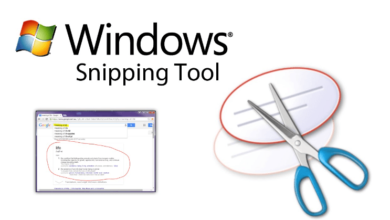Mastering Your Next Exam Tak: Strategies, Tips, and Insights

Exams are a crucial part of our academic and professional journeys, often serving as gateways to new opportunities and achievements. As we approach our next exam, it’s essential to prepare effectively, adopting strategies that enhance our learning and retention capabilities. “Next Exam Tak” embodies a forward-thinking approach to exam preparation, emphasizing innovative study techniques, time management, and wellness to ensure peak performance when it matters most.
Understanding “Next Exam Tak”
“Next Exam Tak” is more than just a study mantra; it’s a comprehensive approach to exam preparation that prioritizes understanding over rote memorization, efficiency over endless hours of study, and well-being over stress and burnout. This method encourages students to leverage scientific study techniques, technology, and self-care practices to optimize their exam readiness.
Read also: Guide to Navigating Filmy4wap Run: A 2024 Perspective
The Science of Effective Studying
Effective studying isn’t just about the hours put in; it’s about how you use those hours. Cognitive science has shown that techniques like active recall, spaced repetition, and interleaved practice can significantly enhance learning and retention. By understanding how our brains process and store information, we can adopt study methods that align with these cognitive principles for better results.
Planning Your Study Schedule
A personalized study schedule is key to covering all necessary material without overwhelming yourself. Start by breaking down your syllabus into manageable segments and allocate specific times to each, ensuring a balance between study, rest, and personal activities. Utilizing digital calendars or study apps can help keep you on track and accountable.
Creating the Perfect Study Environment
Your study environment can greatly influence your productivity. Choose a quiet, comfortable, and well-lit space with minimal distractions. Organizing your materials and tools before each study session can also help save time and maintain focus.
Study Techniques for “Next Exam Tak”
Incorporate active recall by testing yourself on the material, not just passively re-reading notes. Spaced repetition, revisiting topics over increasing intervals, helps cement knowledge over time. The Pomodoro Technique, working in short, focused bursts with regular breaks, can also enhance concentration and prevent burnout.
Leveraging Technology in Exam Preparation
Technology offers a wealth of resources to aid in your studies. Educational apps can provide practice questions, flashcards, and interactive lessons. Online forums and study groups offer collaboration and support, while video tutorials can offer new perspectives on complex topics.
Maintaining Motivation and Discipline
Staying motivated and disciplined can be challenging, especially during prolonged study periods. Setting clear, achievable goals and rewarding yourself for meeting them can help maintain motivation. Building a routine that includes study sessions, breaks, and leisure activities can also support sustained discipline.
Health, Wellness, and Exam Prep
Physical and mental well-being are critical for exam success. Ensure you’re getting enough sleep, eating nutritious foods, and exercising regularly. Techniques like meditation and deep breathing can manage stress and anxiety, keeping you calm and focused.
Mock Exams: The Key to Confidence
Practice exams simulate the actual test environment, helping you become comfortable with the format and timing. Analyzing your performance in these exams can highlight areas for improvement and boost your confidence.
Group Study vs. Solo Study
Both group and solo study have their advantages. While solo study allows for personalized focus and pace, group study can offer new insights, motivation, and clarification on challenging topics. Consider your learning style and the subject matter when deciding between the two.
Memory Techniques for Exam Success
Mnemonics, acronyms, and the method of loci (memory palace) are powerful tools for memorizing facts and concepts. These techniques create associations, making information easier to retrieve during the exam.
Time Management during the Exam
Effective time management during the exam can significantly affect your performance. Read through the entire exam first, prioritizing questions you’re confident in and allocating time accordingly to ensure you can complete the test.
Handling the Day Before the Exam
The day before your exam should be about relaxation and light review. Avoid cramming new information and instead, focus on summarizing key concepts. Ensure you have all necessary materials ready for the exam day to avoid last-minute stress.
The Exam Day: Tips and Tricks
Start your exam day with a nutritious breakfast and a positive mindset. Arrive early to avoid any rush and take deep breaths to stay calm. During the exam, read each question carefully, manage your time wisely, and don’t dwell too long on questions you find difficult.
Post-Exam Analysis and Feedback
After the exam, take the time to reflect on your performance. Identify areas that went well and areas for improvement. Seeking feedback from teachers or peers can also provide valuable insights for future exams.
Next Steps After “Next Exam Tak”
Once your exam is over, consider your next steps. Whether it’s preparing for another exam, pursuing further studies, or taking a well-deserved break, use your experience from “Next Exam Tak” to approach future challenges with confidence.
Read also: PlaylistPush. com: A Game-Changer in Music Promotion
Conclusion
“Next Exam Tak” is more than a preparation strategy; it’s a holistic approach to achieving exam success. By integrating effective study techniques, leveraging technology, and prioritizing health and wellness, you can not only excel in your next exam but also enjoy the journey along the way.
FAQs
How can I apply the “Next Exam Tak” approach to my study routine?
To integrate the “Next Exam Tak” approach into your study routine, begin by adopting active learning techniques such as active recall and spaced repetition. Plan a study schedule that allows for regular review sessions and includes breaks to prevent burnout. Leverage technology by using apps and online resources that enhance learning, and don’t forget to incorporate wellness practices to keep your mind and body prepared.
What are the best study techniques for maximizing retention?
The best study techniques for maximizing retention include active recall, where you test yourself on the material instead of passively reading it; spaced repetition, reviewing the material over increasing intervals; and interleaving, mixing different topics in a single study session. These methods are proven to enhance memory and understanding.
How important is it to have a designated study space?
Having a designated study space is crucial as it helps in minimizing distractions and setting a consistent study routine. A well-organized, quiet, and comfortable space can significantly improve concentration and overall study efficiency.
Can group study sessions be more effective than studying alone?
Group study sessions can be more effective for some learners, especially when discussing complex topics or preparing for exams that involve problem-solving and critical thinking. Studying in a group can provide diverse perspectives, motivation, and clarification on difficult subjects. However, effectiveness can vary depending on the individual’s learning style and the group’s dynamics.
How does one manage stress and anxiety during exam preparation?
Managing stress and anxiety during exam preparation involves maintaining a balanced study schedule, ensuring regular physical activity, practicing mindfulness or relaxation techniques, and keeping a positive mindset. It’s also helpful to set realistic goals and take breaks to enjoy hobbies or spend time with friends and family.
What strategies can be used for effective time management during an exam?
Effective time management strategies during an exam include reading through all the questions first to plan your approach, starting with the questions you’re most confident about to secure marks early on, allocating time proportionally to the marks each question is worth, and keeping track of time to ensure you can answer all questions.
What should I focus on the day before an exam?
The day before an exam, focus on reviewing key concepts, formulas, and summaries rather than trying to learn new material. Ensure you have all necessary materials ready for the exam day. Practice relaxation techniques to maintain a calm state of mind, and get a good night’s sleep to ensure you’re well-rested.
How can I analyze and learn from my exam performance?
After the exam, review your answers alongside the marking scheme or discuss them with peers or teachers to identify areas of strength and improvement. Reflect on the preparation strategies that worked well and those that didn’t, and adjust your approach for future exams accordingly. Embrace mistakes as learning opportunities to enhance your understanding and performance in subsequent exams.




